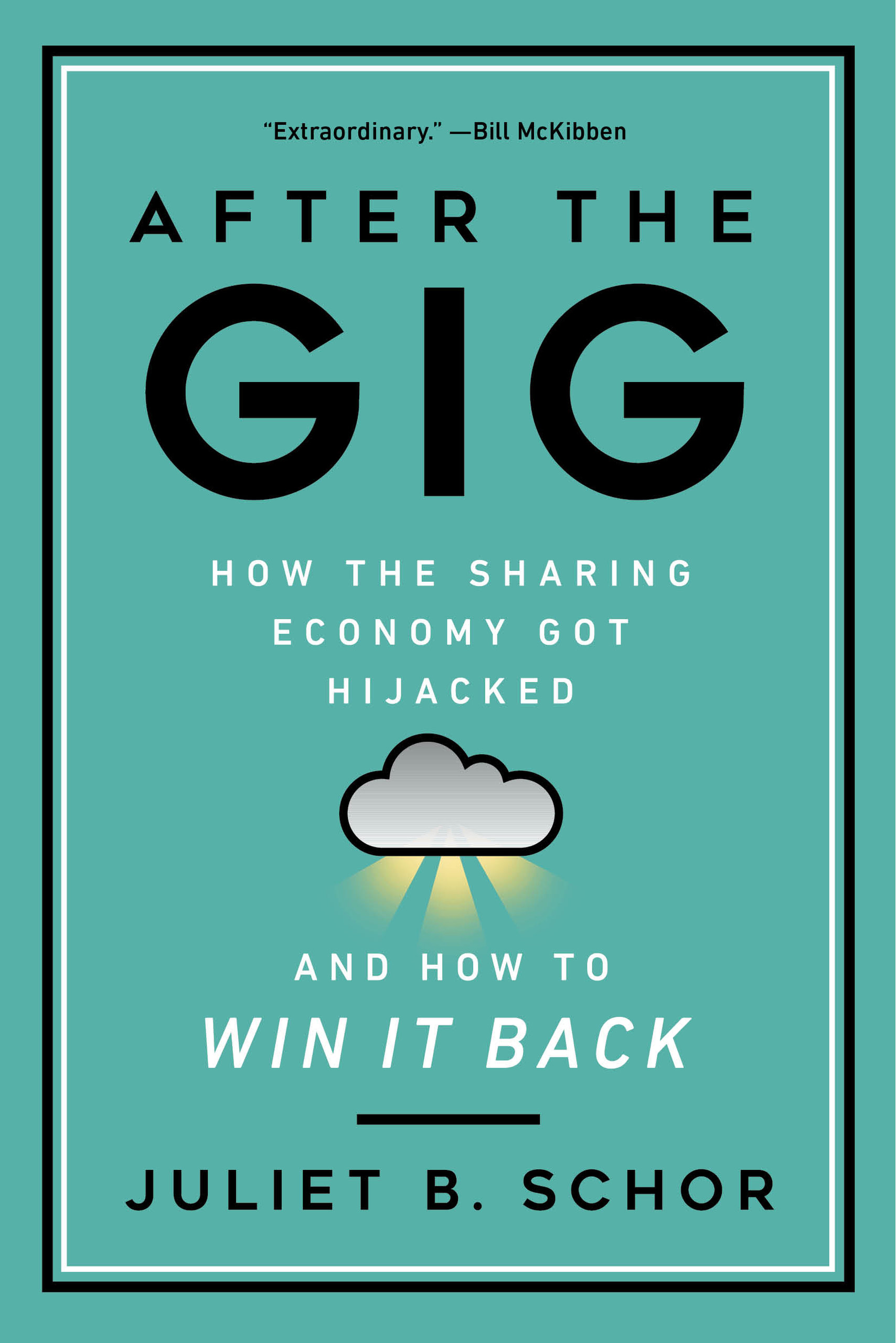
The dark side of the gig economy (Uber, Airbnb, etc.) and how to make it equitable for the users and workers most exploited. When the “sharing economy” launched a decade ago, proponents claimed that it would transform the experience of work—giving earners flexibility, autonomy, and a decent income. It was touted as a cure for social isolation and rampant ecological degradation. But this novel form of work soon sprouted a dark side: exploited Uber drivers, neighborhoods ruined by Airbnb, racial discrimination, and rising carbon emissions. Several of the most prominent platforms are now faced with existential crises as they prioritize growth over fairness and long-term viability. Nevertheless, the basic model—a peer-to-peer structure augmented by digital tech—holds the potential to meet its original promises. Based on nearly a decade of pioneering research, After the Gig dives into what went wrong with this contemporary reimagining of labor. The book examines multiple types of data from thirteen cases to identify the unique features and potential of sharing platforms that prior research has failed to pinpoint. Juliet B. Schor presents a compelling argument that we can engineer a reboot: through regulatory reforms and cooperative platforms owned and controlled by users, an equitable and truly shared economy is still possible.
Author

Juliet Schor’s research over the last ten years has focussed on issues pertaining to trends in work and leisure, consumerism, the relationship between work and family, women's issues and economic justice. Schor's latest book is Born to Buy: The Commercialized Child and the New Consumer Culture (Scribner 2004). She is also author of The Overworked American: The Unexpected Decline of Leisure and The Overspent American: Upscaling, Downshifting and the New Consumer. She has co-edited, The Golden Age of Capitalism: Reinterpreting the Postwar Experience, The Consumer Society Reader, and Sustainable Planet: Solutions for the 21st Century. Earlier in her career, her research focussed on issues of wages, productivity, and profitability. She also did work on the political economy of central banking. Schor is currently is at work on a project on the commercialization of childhood, and is beginning research on environmental sustainability and its relation to Americans’ lifestyles. Schor is a board member and co-founder of the Center for a New American Dream, an organization devoted to transforming North American lifestyles to make them more ecologically and socially sustainable. She also teaches periodically at Schumacher College, an International Center for Ecological Studies based in south-west England. from http://www2.bc.edu/~schorj/default.html